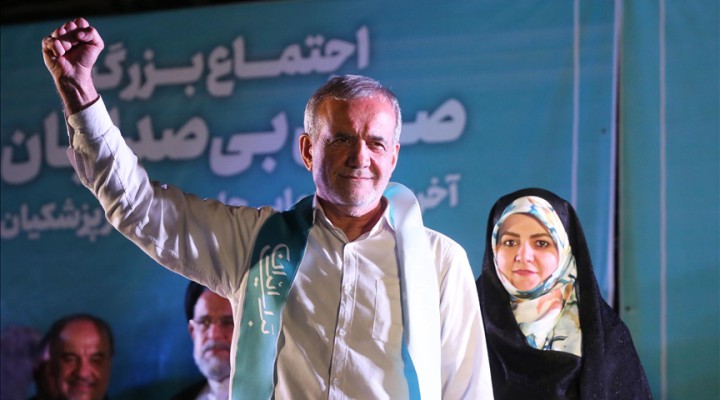Iran’s new president

What will the election of Masoud Pezeshkian mean for the Islamic republic?
The victory of reformist Masoud Pezeshkian over hardline conservative Said Jalili in the second round of Iran’s presidential poll lends much credibility to the elections and the democracy under which they were held. It comes in response to the Iranian people’s desire for reform and social and political openness, and can be expected strengthen the policy of rapprochement with Arab and especially Gulf neighbours.
It was clear from observing the electoral process that Iran’s ruling establishment, or rather its deep state, while prioritising higher national interests, is also responding positively to the mood, grievances, and demands of the public, as reflected in the election results. That is why it gave the reformists the opportunity to regain leadership of the executive authority after the erosion of their influence since the end of Mohamed Khatami’s term nearly 19 years ago.
The new reformist president is unlikely to make any radical changes to Iran’s foreign policy or halt the development of its nuclear programme.
But his presence as head of the executive will certainly ease the disaffection prevailing among many sections of the population and strive to achieve reconciliation between the public and the ruling authorities. The hope is for greater openness for in terms of political and social rights, easing curbs on the Internet and social media and obligatory hijab-wearing, along with unremitting efforts to secure the lifting or easing of economic sanctions and reduce tensions with Western capitals.
The rise in the value of the Iranian currency and shares on the Tehran stock exchange in response to Pezeshkian’s election is an important pointer in this regard.
The West has begun to appreciate that Iran has become a regional superpower and that the economic blockade it has been subjected to for 40 years has been counterproductive. It prompted it to develop a formidable and sophisticated domestic military industry which not only made it self-sufficient but turned it into an exporter of missiles, drones, and submarines.
The West has also begun to realise that the election of a reformist president could help ease tensions and enable a gradual reversion to better relations. But that does not mean there will be any early lifting of sanctions.
There are three main constraints on Pezeshkian’s ability to make major policy changes.
First, the presence of the leader Sayyed Ali Khamenei who has the final say in such matters — not just because of his religious authority but also his personal authority and experience as a former president and protege of the leader of the revolution Imam Khomeini.
Secondly, conservatives and hardliners retain control of parliament, and will subject the new president and government’s decision to intense scrutiny.
Third, the growing power of the military establishment represented by the army and Revolutionary Guard.
That does not mean Pezeshkian will be powerless. He will be a key member of the National Security Council and have broad powers enabling him to change many domestic policies. The previous reformist president Hassan Rouhani, for example, initiated the return to negotiations with the US administration to achieve a peaceful resolution to the nuclear dispute. Pezeshkian could well seek to revive the Vienna talks with the US, though that does not mean reaching an agreement that is unacceptable to Iran or curtails its nuclear ambitions.
Pezeshkian’s choice of his ministerial team should shed more light on his domestic and foreign policy orientation, especially the foreign minister who will leader Iran’s diplomacy. There is speculation that the job may be entrusted to veteran diplomat Abbas Araghji who was deputy foreign minister and chief nuclear negotiator in Rouhani’s government.
Pezeshkian’s job will not be easy given all the wars raging in the region — from Gaza and the West Bank to the Red Sea and Hezbollah’s escalating war of attrition on the South Lebanon front — in which Iran plays a supportive role as leader of the Axis of Resistance to Israel.
The warmly worded message of congratulation sent to Pezeshkian immediately after his election was announced by Saudi Arabi’s de facto ruler Crown Prince Mohammad Bin Salman means a lot. It signals the two sides’ willingness to cooperate, and that could be a precursor of new political and economic arrangements in the region based on collaboration rather confrontation.
 TheAltWorld
TheAltWorld 
0 thoughts on “Iran’s new president”